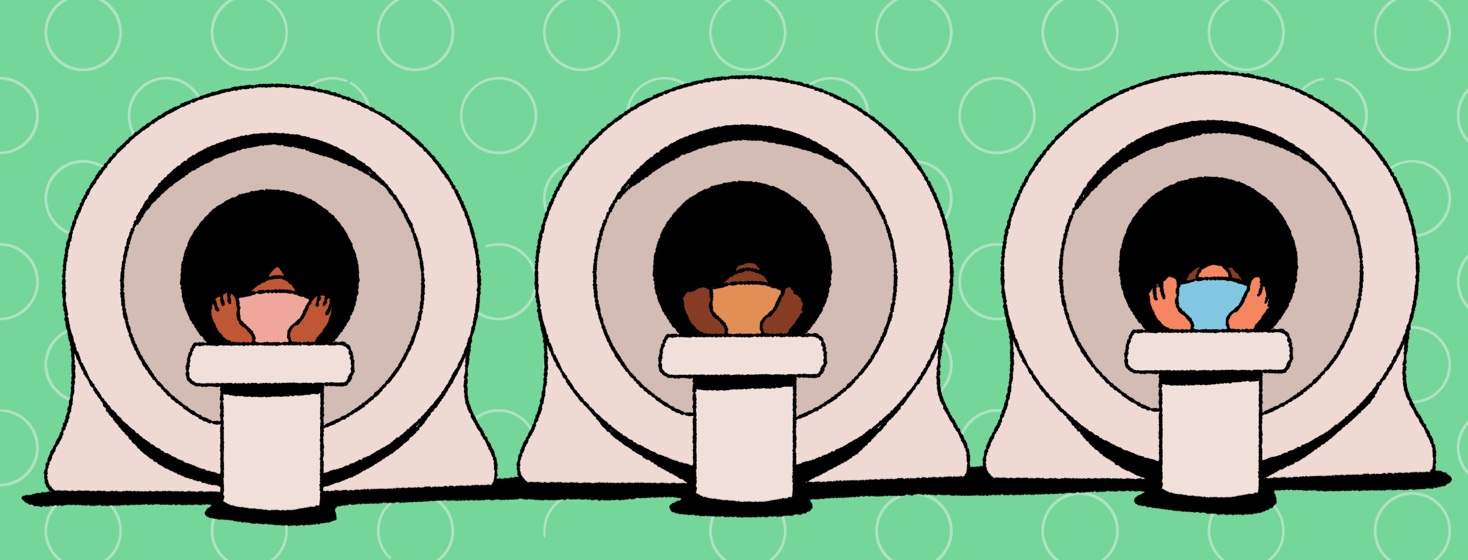Tips for Tackling Scanxiety
One thing you can surely expect when being treated or monitored for cancer is scans. While there is no true screener that can diagnose ovarian cancer, scans help doctors locate masses throughout the body and determine if the cancer has spread, shrunk, or come back. Since scans give us the answers regarding our own fate, it makes sense that they can sometimes bring anxiety.
My own scanxiety
When I think of “scanxiety” (scan anxiety) my brain goes to my first CT scan. I remember it like it was yesterday. May 8th, 2020 at 8am I found myself at the hospital all alone after I was informed the day prior that I most likely had ovarian cancer and would be going into emergency surgery in a couple of days. I was given this awful contrast to chug down, all while dodging calls from my family checking in on me and running on no sleep or nutrition in my body. I had a full-blown panic attack before they could get me out of the waiting room.
Tips for tackling scanxiety
I’ve come a long way since that scan. I still sometimes struggle with those memories when I enter the radiology department at the hospital. However, I don’t want every scan to be miserable. After all, these scans are saving my life!
Here are some tips and tricks I’ve learned to utilize during my scan days to make them go as smoothly as possible.
1) Take the day off
In the past, I have had stressful reactions to CT scans. Luckily for me, I know what triggers this response and I take the necessary precautions to be prepared. But just in case that were to happen, I schedule my CT scans on days that I am not scheduled to work. As a full-time therapist, I must take care of myself to be able to support my clients. If something were to happen that day, I want to make sure I have time to cope with the emotions I am feeling without the pressure of getting things done afterward. If you have the privilege to schedule your scan on a free day out of your week, I highly recommend it!
2) Bring something to entertain you
We all are not immune to the long waits during doctors’ visits. Specifically, when getting a CT scan, you must arrive an hour early to drink liquid contrast. It’s not pleasant being forced to consume something that isn’t particularly appealing. So, I like to distract myself with games on my phone, Netflix, my favorite podcast at the current moment, word puzzles, or my relaxing music playlist. Whatever is going to help pass the time and keep my mind off of the task at hand is helpful!
3) Be open and honest with the doctors
Whenever I’m feeling a bit of anxiety about a scan or evaluation, I like to share these feelings with whoever is working with me that day. It may feel weird to share your vulnerability with someone you don’t know that well. However, I have found that sharing these things can help lighten the mood in the room. It lets the doctors meet you where you are at and take things at your own pace. Feeling like you have control over how the appointment goes is important for our empowerment as patients.
4) Treat yourself afterwards
After getting my scans done, I like to follow up with a reward for myself. There is nothing like positive reinforcement that makes the scans more tolerable. If you have something to look forward to at the end of the appointment, it neutralizes the experience. My choice of reward is often eating a meal out or getting a sweet treat. Some people may prefer getting themselves a new book, article of clothing, or seeing a friend. But whatever it may be for you, I support it!
What are your scanxiety tips?
I hope these tips may be helpful for you or someone you love. Remember that we all have different ways of dealing with scanxiety and that is okay!
I encourage you to share your tips and tricks in the comments and with others who could use them. Let’s tackle these scans together!

Join the conversation